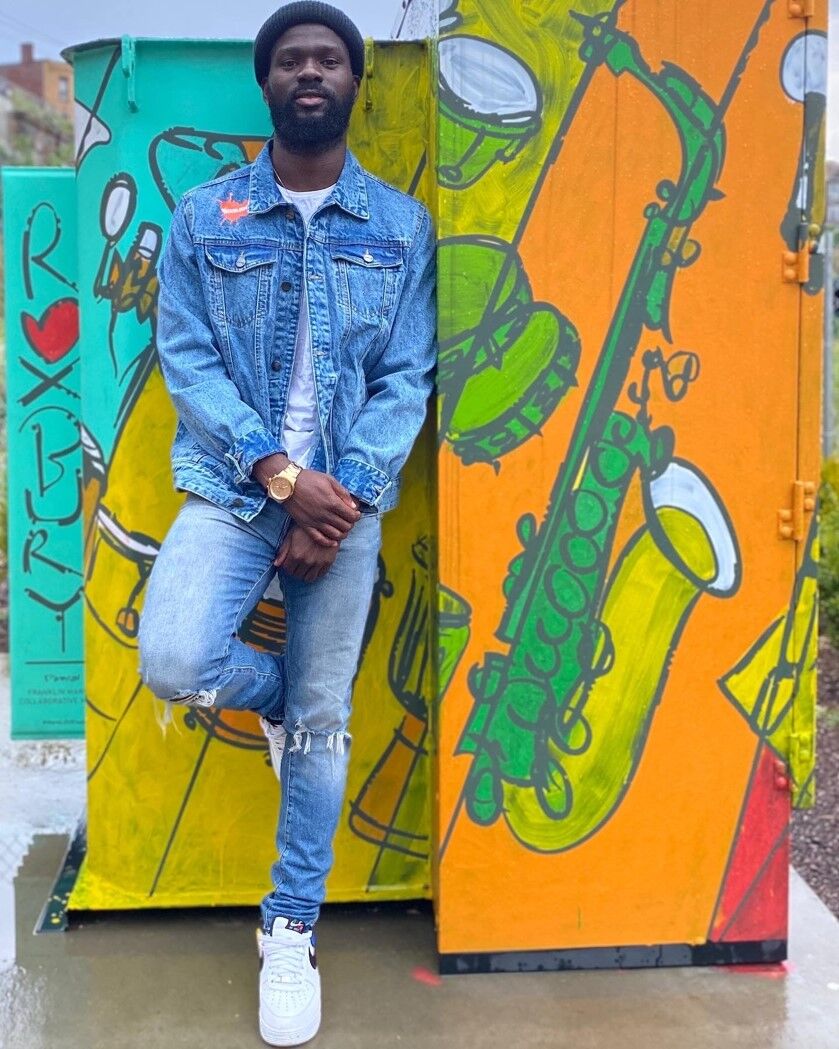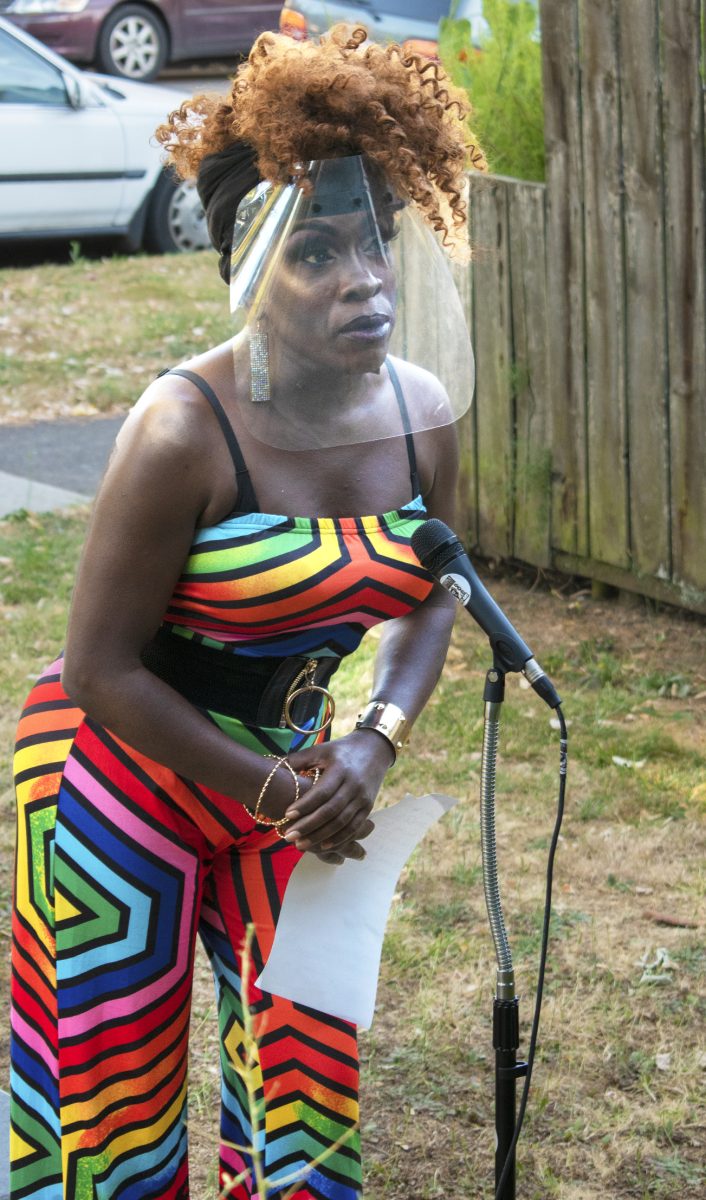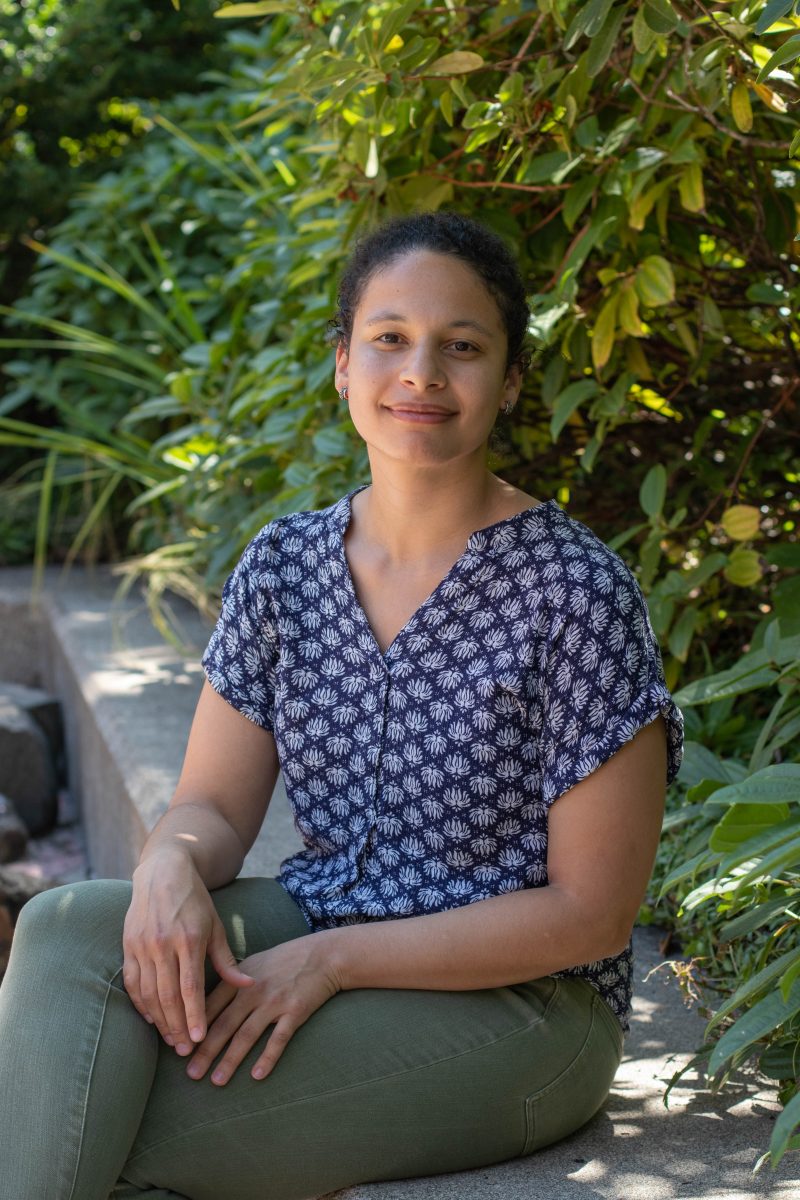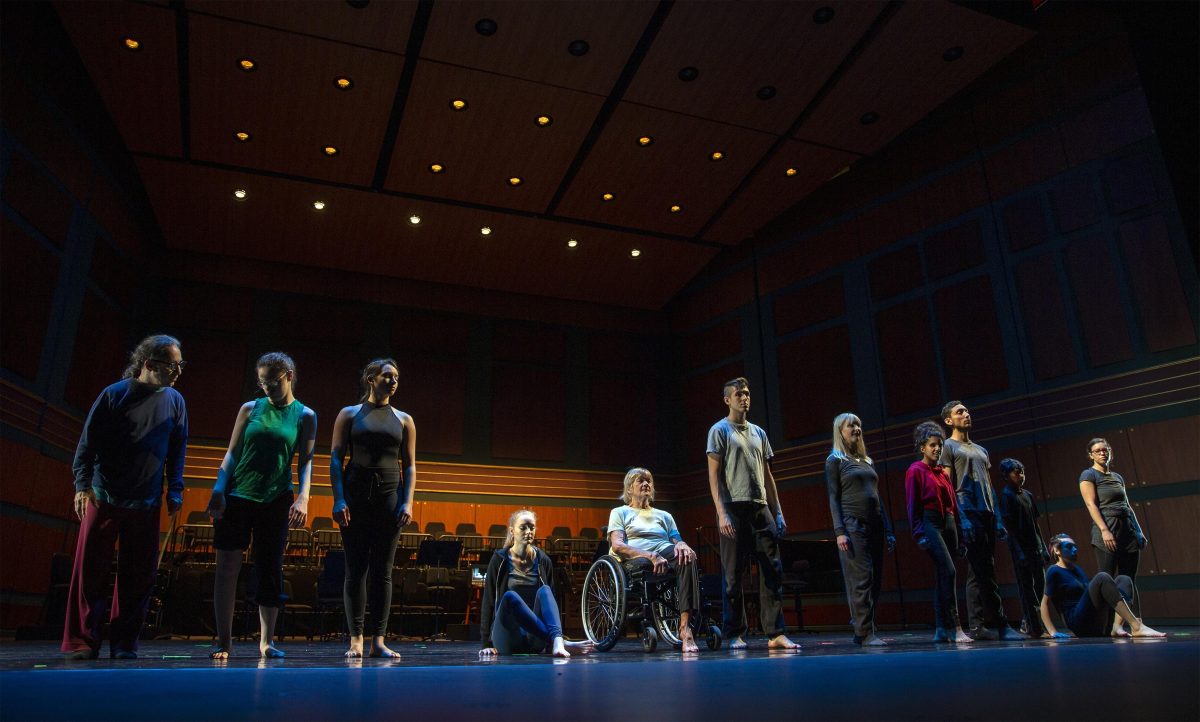It was pitch-black and late, practically morning, as a teenaged Seun Adedeji stumbled into his aunt’s home in Texas. He’d been out partying with his friends and was hoping to sneak back quietly without waking her, knowing she had to get up in a couple of hours for a long day at work. As he made his way into the house though, he found her waiting for him in the living room. His stomach dropped as he waited for the anger and scolding to begin. He shouldn’t have gone out.
Another teen may not have worried so much about accidentally waking up a loved one after a night out. But for Adedeji, this was big. Moving to Texas had given him a fresh start. He was no longer a child selling candy bars or a middle-schooler selling pot to survive. Now he had someone looking after him; now he could really be a kid, a kid who partied with his friends instead of searching for his next meal.
His aunt had done so much for him since he moved in, all while working long hours as a nurse. He’d hate to disappoint her or cause her any more trouble.
But when he stepped into that room, she only asked him if he had fun.
“Yes?” He replied, still thinking it was some sort of trick and he was about to get told off.
“Okay. I wanted to make sure you get home safe. I love you, and I wanted to make sure you’re okay,” she said.
While he didn’t know it at the time, moments like this, of understanding from the people who care for him, are what will inspire Adedeji to keep what he calls “the human element” at the forefront of his business and legal work.
“That moment meant the world to me,” Adedeji says. “I am a product of great people that have just poured into me.”
Now, at 26 years old, Adedeji is one of the youngest Black men in the U.S. to own a cannabis dispensary and the only Black dispensary owner in Eugene. Adedeji’s struggles opening the business left him wanting to make the industry more accessible for people of color. He is now working with legislators to legalize marijuana in other states and simplify the expensive process of opening a dispensary, all while he mentors his own employees in hopes they will one day open their own stores.
Adedeji says more people of color should be placed in ownership and management positions within the industry. According to data from Verilife, a division of one of the country’s largest marijuana companies, Eugene ranks No. 4 in dispensaries per capita out of 600 cities with a population of over 50,000. About 55 dispensaries are open in Eugene, yet Adedeji’s Elev8 is the singular Black-owned dispensary among them.
“We have no ownership,” Adedeji says. “We need to have that conversation, about why. It’s time for us to get what we deserve
Adedeji fought some major battles to get where he is today. When he was three years old, Adedeji and his family moved from Nigeria to Chicago, where he grew up on the South Side. From a young age, Adedeji faced financial instability. He was forced to look for ways to pay for himself. In second grade, he began reselling candy bars from the corner store at school, undercutting the prices of the ones sold in the cafeteria. But as he got older, Adedeji turned to selling marijuana to bring in more money. He was arrested when he was just 13 years old.
“I remember thinking my life was over,” Adedeji says. “Since I was a DACA child, I didn’t have any documentation. I could lose everything, even my ability to become a citizen could be taken away from me, and I could be forced back to a country I’d never really been to before. All of that hit me at once and I was honestly terrified.”
Thankfully for Adedeji, the police saw him for what he really was — a scared kid, not a criminal. They told him that if he didn’t get arrested for marijuana possession again by the time he turned 18, they would wipe the arrest from his record. Considering the financial and emotional burdens he was dealing with, Adedeji says he is proud he was able to hold up his end of the deal. If he had failed, his life would look very different today.
After his arrest, Adedeji joined the Future Business Leaders of America and Key Club in high school. He realized he wanted to start his own business one day and stay engaged in his community. By the time he was 20, Adedeji was managing nine Sprint stores in Washington to save up to open a dispensary in Eugene.
Adedeji wanted to get involved in the emerging industry as quickly as possible. He was familiar with some of the positive effects of cannabis, such as increased creativity and pain relief. He wanted to work his way up to a position where he could help other minority citizens get the necessary financial and legal resources to start their own businesses. Based on his early experiences of speaking with legal advisors and getting rejected for loans and license applications, he feared the industry was not as accessible for minority groups.
Adedeji says that he had to sacrifice regular life to see his goals come to reality. Opening a dispensary requires a large amount of capital, time, and knowledge about the legalities of this kind of business. Depending on the location, dispensary startup costs can range from $325,000 to $1.13 million, according to research done by Green Man Cannabis, a Colorado-based cannabis company.
“I read the law and did it all myself: installing the security cameras, the safe, finding a place 1,000 feet away from another dispensary or school, everything to be compliant with the state,” Adedeji says. “I slept in my shop for a year while I worked from 8 a.m. to 10 p.m. and oh man, was it hard work.”
In order to amplify minority voices in the industry, Adedeji says he prioritizes reinvestment in communities that have been most impacted by the war on drugs. He works with the Last Prisoner Project, a group dedicated to freeing people imprisoned for cannabis offenses. The organization is also writing bills intended to simplify the dispensary opening process and to allow those with previous cannabis offenses, a population that disproportionately consists of Black Americans, to apply for licenses and loans.
According to a 2020 analysis by the American Civil Liberties Union, Black Americans are 3.64 times more likely to be arrested for marijuana possession than white Americans, despite similar usage rates. Adedeji says that if you come from a community that suffers higher rates of poverty and arrests, it can feel impossible to match the capital of white competitors.
“If anyone is going to be making one dollar from this plant, justice needs to be served,” says Kendra Freeman of the Oregon Cannabis Association.
Like Adedeji, Freeman is angered by the financial disparities between white and minority citizens and sees tax revenue reinvestment as a step toward reducing that gap.
As of June 2020, cannabis taxes have brought in almost $57 million to Oregon. Currently, 40 percent of that total is given to the State School Fund, 20 percent to Alcoholism and Drug Services, 15 percent to the Oregon State Police and five percent to the Oregon Health Authority for Drug Treatment and Prevention. The final 20 percent goes toward general city and county budgets.
Previously, the association wrote a bill with Julie Fahey, the State Representative for Oregon’s House District 14, which includes West Eugene, Bethel and Junction City, to allocate money to specific agencies that can disperse funds to communities in need. It didn’t pass. Now the association holds meetings every week to rewrite it.
“It’s hard because many times, this money does not actually end up in the Black and brown community,” Freeman says. “It often goes into a general fund, then gets dispersed in a roundabout way, even making its way back to the police department.”
Adedeji hopes for reform in cannabis tax reinvestment, but he is also looking for other ways to help newcomers in the industry. Now that Elev8 is well-established and expanding to other states like Massachusetts and Illinois, Adedeji is taking his employees and teaching them the legal, business and customer service sides of the industry. He says the goal is to get them their own shops one day and help them grow as leaders.
Cassie Michaud, who has been employed by Adedeji since June, says she can’t imagine finding another brand that compares to Elev8’s service to both customers and employees.
“We’re working together to create space for those typically without it in the industry, and Seun really listens to all our input,” Michaud says. “I’m so lucky for the trust and belief Seun has put in me.”
Adedeji says that before his aunt gave him a chance, he was an angry kid, frustrated with his circumstances and concerned for his future. Now, he is proud of the supportive community he has found in his employees and customers and hopes they can share the same compassion that helped get him where he is today.
“They saw me beyond race, beyond everything,” Adedeji says. “They just saw me for me. I remember thinking yes, I’ve found my purpose. It felt amazing.”
Many strains of cannabis are available at Elev8 to cater to the desired effect or experience a customer is looking for, whether medicinal or recreational.












![[Photo Courtesy of the Lara Family]
Ruben embraces his beloved childhood goat, Katrina.](http://ethos.dailyemerald.com/wp-content/uploads/2025/05/katrina-1-1060x1200.jpg)


